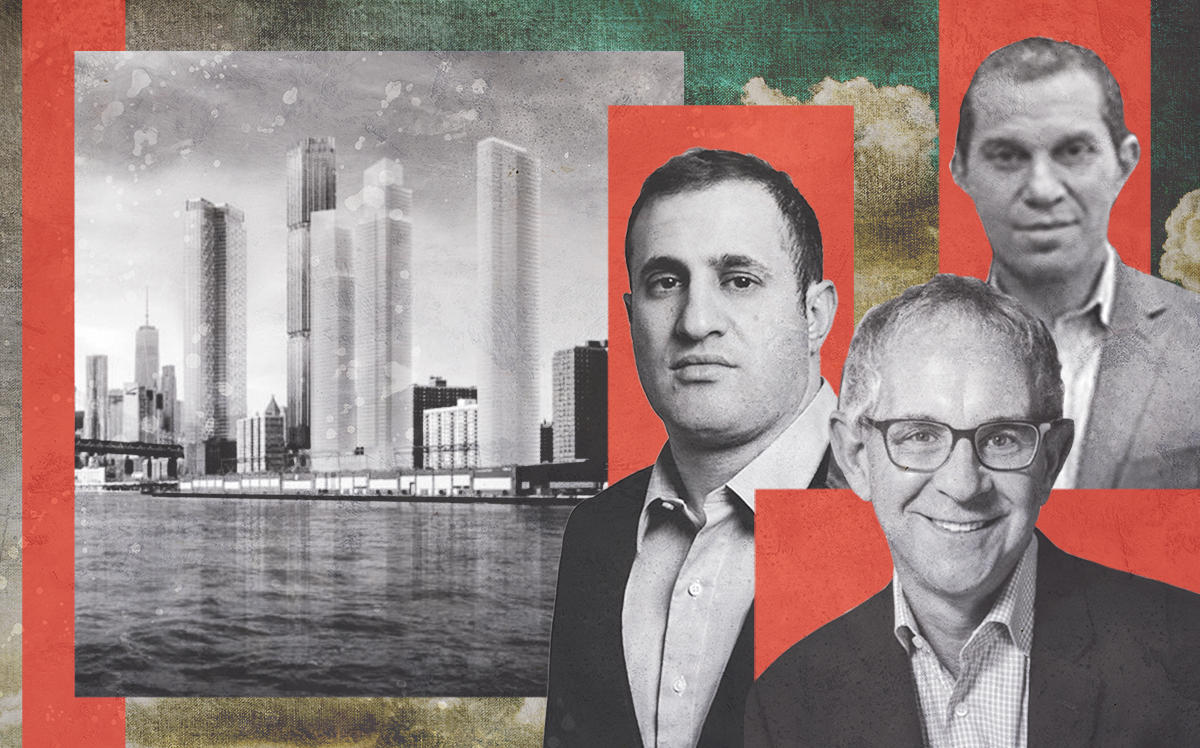 Inwood rezoning is a done deal
Inwood rezoning is a done deal
Trending
Two Bridges developers beat two more lawsuits blocking projects
Appellate Division reverses lower court’s decisions on Manhattan towers

After a series of setbacks, developers planning four towers in Two Bridges have survived two more legal challenges.
A state appeals court on Tuesday unanimously overturned two decisions, clearing the way for the projects to move forward. The panel of judges found that the lower court judge should have deferred to the Department of City Planning’s “reasonable interpretation” that the city’s zoning resolution didn’t require further justification for its approval of the towers.
Neighborhood groups had argued that the developers’ proposed modification to the Two Bridges large-scale development plan, which was approved in 1972, required further examination by the city. Opponents argue that the projects require City Council approval.
Read more
 Inwood rezoning is a done deal
Inwood rezoning is a done deal
 Judge nixes Inwood rezoning
Judge nixes Inwood rezoning
 Shock ruling could throw 200 Amsterdam loan into default
Shock ruling could throw 200 Amsterdam loan into default
Paula Segal, an attorney who represents Tenants United Fighting for the Lower East Side and other neighborhood groups in one lawsuit, said her clients are considering their legal options.
Kenneth Kimerling, who represents Lower East Side Organized Neighbors and other organizations that brought a second lawsuit, did not immediately return a request seeking comment.
Because the Appellate Division’s decision was unanimous, the groups would need to receive court approval to appeal to the state’s highest court.
The three projects — JDS Development’s 247 Cherry Street, L+M Development and CIM Group’s 260 South Street and Starrett Corporation’s 259 Clinton Street — would have 2,775 rental units across four towers at three addresses. A quarter of those units would be set aside as affordable.
The developers are also upgrading a local subway station and financing repairs at a nearby public housing complex. A spokesperson for developers praised Tuesday’s decisions.
“Private investments in affordable housing and essential community infrastructure are critical as the city emerges from the pandemic, and these projects will deliver a range of meaningful and lasting benefits for the Two Bridges neighborhood,” the spokesperson said in a statement.
The Appellate Division’s decisions cap a tumultuous two years for the projects. In June 2019, Supreme Court Judge Arthur Engoron halted the developments, agreeing with the New York City Council and Manhattan Borough President Gale Brewer that the projects must go through the city’s land use review process. In February 2020, Engoron similarly ruled in favor of community groups in two other lawsuits challenging the projects.
But the Appellate Division reversed Engoron’s first decision in August 2020, casting doubt on the prospects of the other two lawsuits.
Those complaints argued that City Planning was required to report certain findings before approving the projects, based on a provision in the zoning resolution. In Tuesday’s decisions, the panel found that the developers “persuasively argue” that the provision doesn’t apply to their projects.
The Two Bridges lawsuits were among several recent cases that concerned the real estate industry.
In late 2019 a state Supreme Court judge annulled the city’s rezoning of Inwood. That decision was ultimately overturned. Developers of another project, 200 Amsterdam, are still awaiting the results of its appeal after a lower court ruled that it must remove 20 floors to comply with zoning rules.




